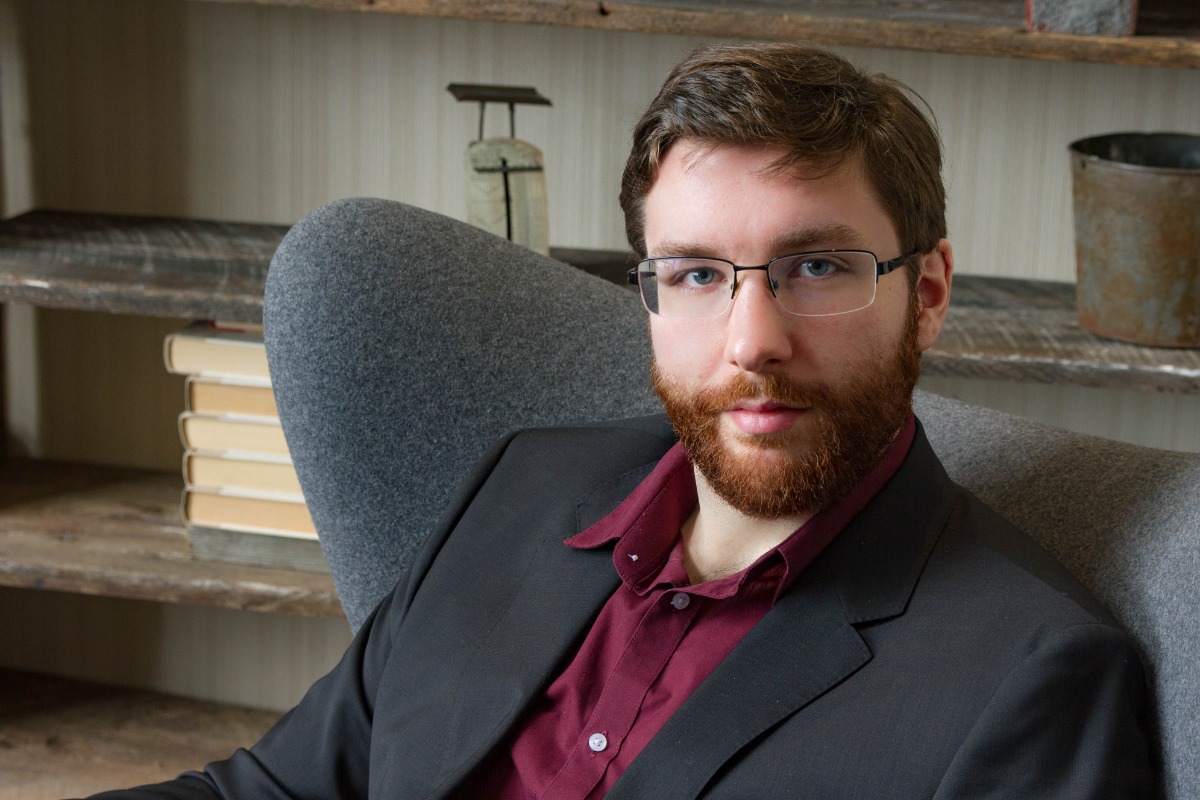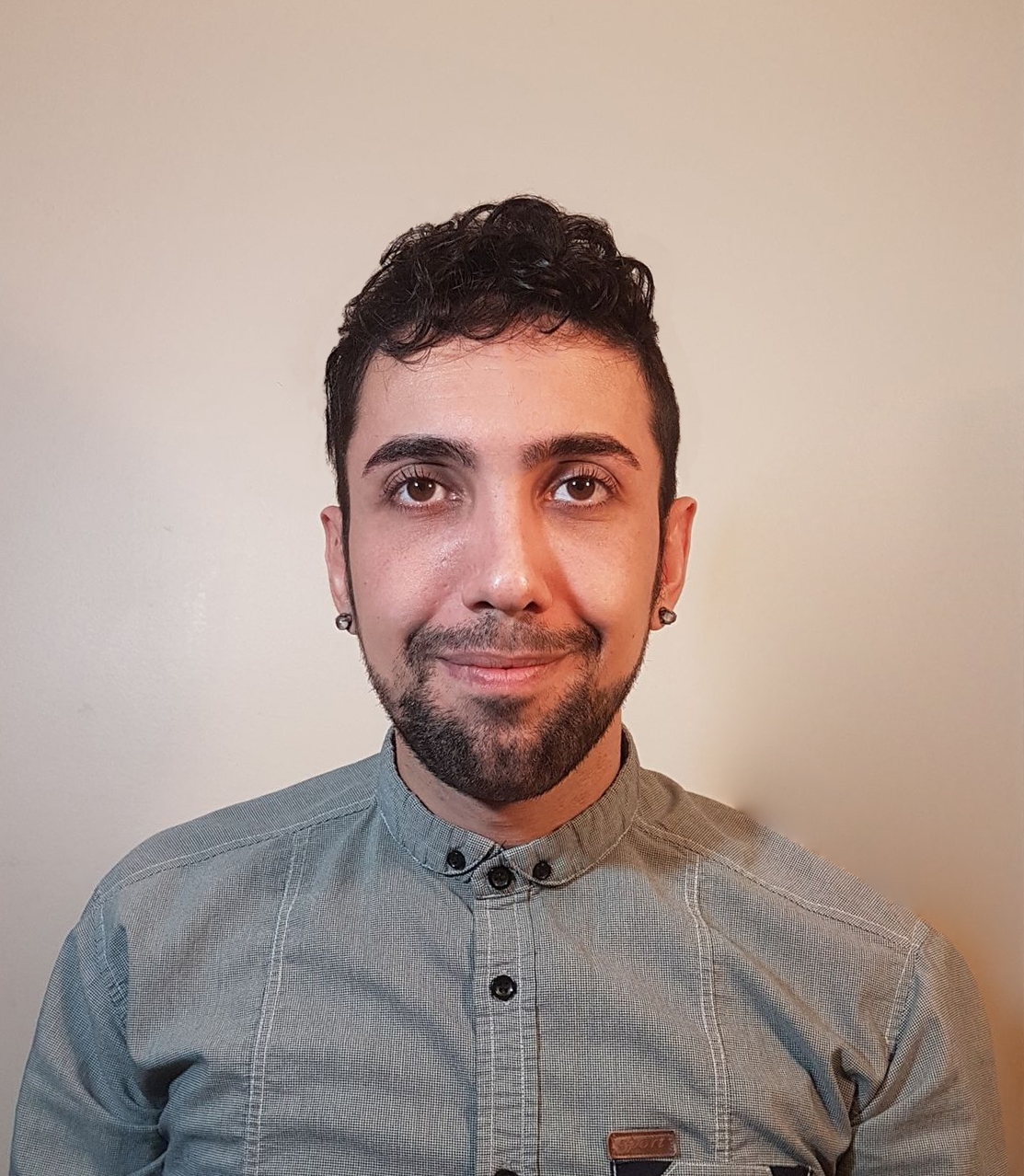Article
Babak Hemmatian and Matthew Lowerison will present at the final Beckman Institute Director's Seminar of the semester.
The seminar will be held at noon on Thursday, April 25 in 1005 Beckman Institute. Lunch will be provided to participants who register in advance.
"Super-resolution ultrasound: Non-invasive deep-tissue microvascular imaging"
 Matthew Lowerison.Ultrasound localization microscopy, or ULM, is a super-resolution imaging technique that uses microbubbles in the blood stream to achieve microvessel-scale imaging fidelity. Notably, ULM is non-invasive, does not have harmful ionizing radiation and improves resolution without sacrificing imaging depth, enabling deep-tissue imaging of entire organs.
Matthew Lowerison.Ultrasound localization microscopy, or ULM, is a super-resolution imaging technique that uses microbubbles in the blood stream to achieve microvessel-scale imaging fidelity. Notably, ULM is non-invasive, does not have harmful ionizing radiation and improves resolution without sacrificing imaging depth, enabling deep-tissue imaging of entire organs.
In this seminar, we detail the development and technical advances of ULM imaging achieved at the Beckman Institute as supported by a Beckman Institute Postdoctoral Fellowship. We demonstrate whole brain microvessel imaging from live mice and rats, achieving image quality that approaches capillary scale, using a clinically translatable methodology. We also explore the application of ULM for preclinical cancer therapy evaluation and the characterization of cognitive decline due to aging and Alzheimer's disease.
Matthew Lowerison was selected as a 2022 Beckman Institute Postdoctoral Fellow and is now a research scientist in the Department of Electrical and Computer Engineering at the University of Illinois Urbana-Champaign. He received his Ph.D. from the University of Western Ontario, Canada, and did postdoctoral work at Mayo Clinic, Rochester, and at Illinois. His research focuses on the development and application of super-resolution ultrasound imaging for small animal microvascular imaging. This technology provides a non-invasive and safe method to image blood vessels down to the capillary scale. Lowerison’s postdoctoral work at the Beckman Institute aimed to apply super-resolution ultrasound for identifying the tumor vascular characteristics associated with chemotherapy sensitization, and to investigate the neurovascular phenomena associated with aging and Alzheimer’s disease.
"Thinking with a community at multiple levels of analysis"
 Babak Hemmatian.
Babak Hemmatian.Humans overcome their individual processing limitations to effectively manipulate a complex world mainly by relying on knowledge they do not possess but have access to through their communities (Sloman & Fernbach, 2017). Two sets of strategies for outsourcing and collaboration support interfacing with this resource, both adapted to work well with very shallow representations focused on knowledge access rather than content (Hemmatian & Sloman, 2020). A complete understanding of this process is only possible through simultaneous modeling of cognitive processes in the individual and the broader community. In this talk, I will outline a research program that has been laying the groundworks for such an integrated analysis. I will start with a theoretical framework based on Dual Systems theory of reasoning. I will then present novel behavioral paradigms that identify outsourcing strategies with the intuitive system and examine computational modeling approaches for quantifying them. Afterwards, I will explore natural language processing pipelines for analyzing the community context for outsourcing and recent neuroscientific projects that clarify individuals’ computing constraints in interfacing with it. I will end my talk with an overview of how the different levels of analysis may be combined, and what the implications would be for the brain and psychological sciences.
Babak Hemmatian is a 2021 Beckman Postdoctoral Fellow at University of Illinois Urbana-Champaign. Previously, he earned an M.S. in computer science and a Ph.D. in cognitive science from Brown University. His research is focused on how individuals incorporate information from their communities into their reasoning, and how they negotiate the contents of this collective information base with other members. He uses a variety of behavioral, computational, and neural methodologies to this end. Outside academia, he is a peace activist and formalist poetry translator.
Beckman Institute for Advanced Science and Technology